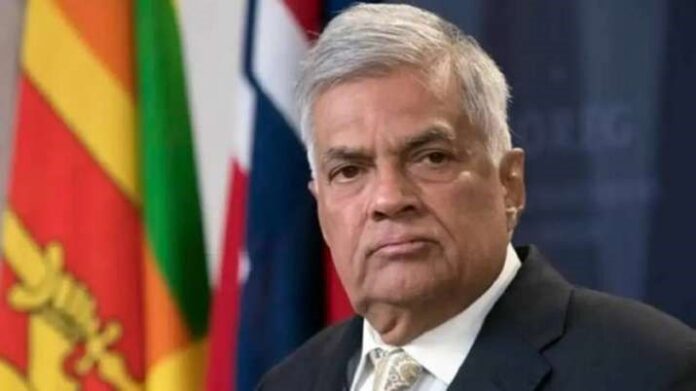| Translate This News In |
|---|
Acting President Ranil Wickremesinghe was elected President of Sri Lanka by Parliament on Wednesday, ending a high-voltage political thriller that saw his predecessor, Gotabaya Rajapaksa, depart the nation and resign after a popular rebellion against his government for mismanaging the economy.
The 73-year-old six-time prime minister received 134 votes in the House of 225, while his nearest competitor and dissident governing party leader Dullas Alahapperuma received 82. Anura Kumara Dissanayake of the leftist Janatha Vimukthi Peramuna (JVP) received only three votes.
The new President will be tasked with finishing Rajapaksa’s tenure, which expires in November 2024.
For the first time in 44 years, Sri Lanka’s Parliament directly chose a president. They were chosen by popular vote in 1982, 1988, 1994, 1999, 2005, 2010, 2015, and 2019.
The only other time the presidency became vacant mid-term was in 1993, when President Ranasinghe Premadasa was killed. Parliament unanimously approved DB Wijetunga to serve the remainder of Premadasa’s term.
Legislators recommended Ranil Wickremesinghe, dissident governing party leader Dullas Alahapperuma, and leftist Janatha Vimukthi Peramuna (JVP) leader Anura Kumara Dissanayake as the three presidential candidates on Tuesday.
To win the election, a candidate had to get more than 113 votes in the 225-member House. The new President will be tasked with finishing Rajapaksa’s tenure, which expires in November 2024.
In the important election, 223 parliamentarians voted, with two MPs abstaining.
Speaker Mahinda Yapa Abeywardena was the first to vote. The two senior Rajapaksa brothers, Mahinda and Chamal, were also present during the voting.
What happened prior to the presidential election in Sri Lanka?
Wickremesinghe held a narrow lead until Tuesday night, when a number of MPs promised their support for him, while his competitor Alahapperuma got significant support from Opposition parties as well as a majority of lawmakers from his parent party, the Sri Lanka Podujana Peramuna (SLPP).
The name Alahapperuma was proposed by Opposition Leader Sajith Premadasa and seconded by Member of Parliament G L Peiris.
Wickremesinghe’s name was proposed by Leader of the House and Minister Dinesh Gunawardena, and it was seconded by MP Manusha Nanayakkara. MP Vijitha Herath offered Dissanayake’s name, which MP Harini Amarasuriya seconded.
Wickremesinghe, 73, was already considered the frontrunner due to his support from the ruling Sri Lanka Podujana Peramuna (SLPP). Despite facing a severe challenge from 63-year-old Alahapperuma, who had the support of the main opposition.
The Sri Lanka Freedom Party (SLFP), the Tamil Progressive Alliance (TPA), the Sri Lanka Muslim Congress (SLMC), and the All Ceylon Makkal Congress (ACMC) all voted for Alahapperuma. Several parliamentarians, however, have stated that they will vote for Wickremesinghe rather than the party line.
On July 27, the Parliament will reconvene.


















